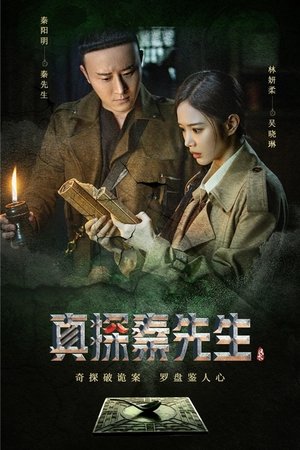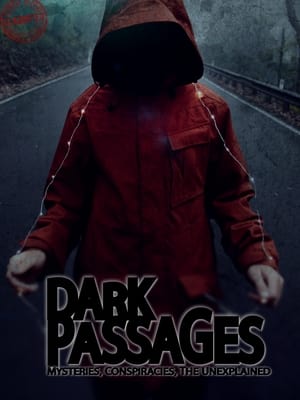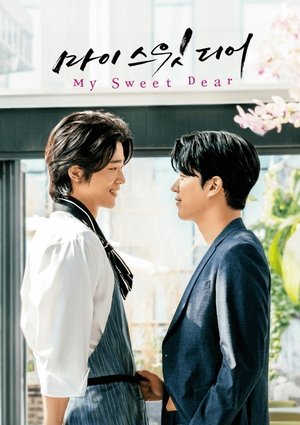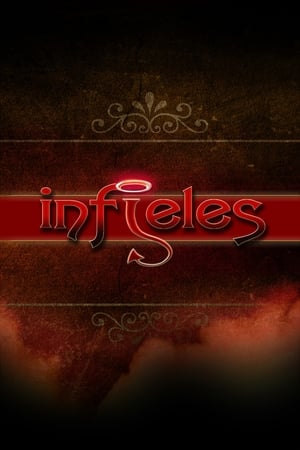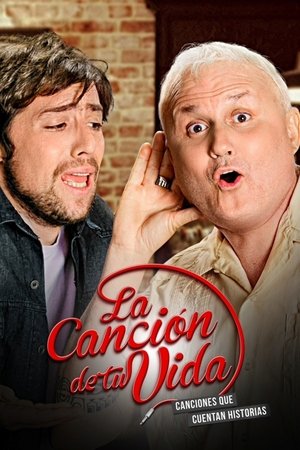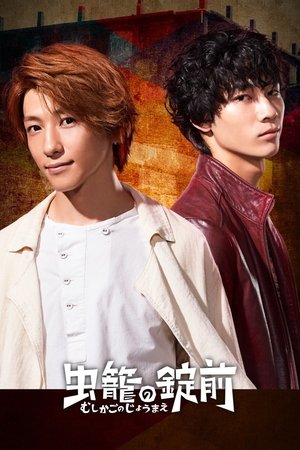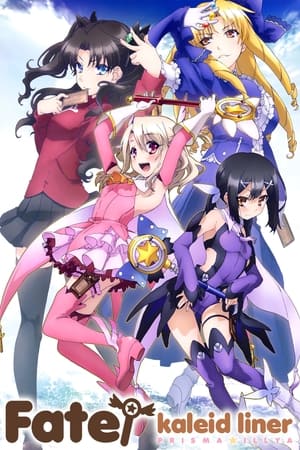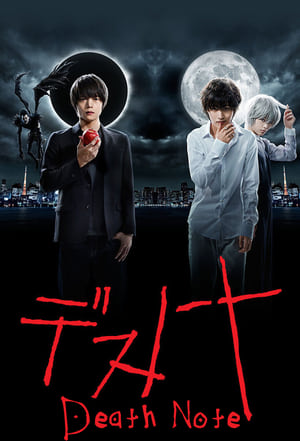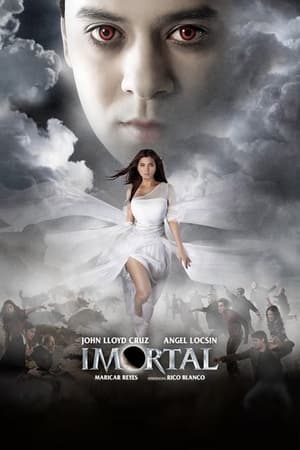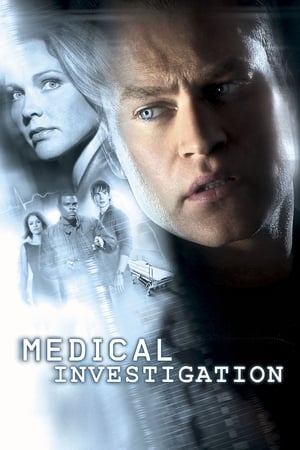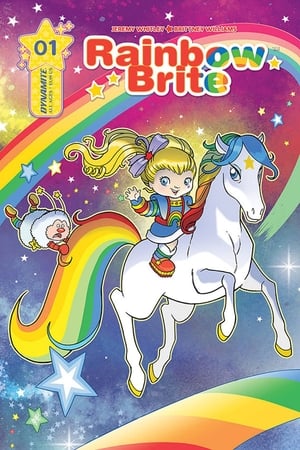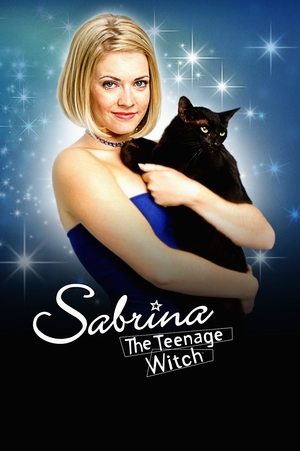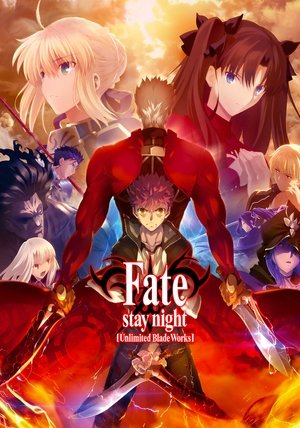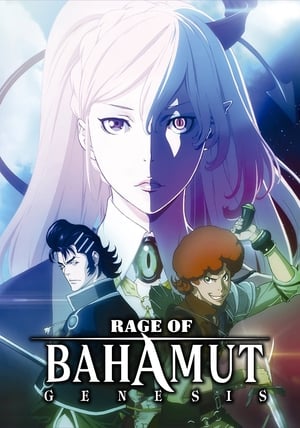Overview
An anthology horror drama series centering on different characters and locations, including a house with a murderous past, an asylum, a witch coven, a freak show, a hotel, a farmhouse in Roanoke, a cult, the apocalypse and a summer camp.
Reviews
**_Thoughts on Apocalypse_**
> _In our new age of terrifying, lethal gadgets, which supplanted so swiftly the old one, the first great aggressive war, if it should come, will be launched by suicidal little madmen pressing an electronic button. Such a war will not last long and none will ever follow it. There will be no conquerors and no conquests, but only the charred bones of the dead on an uninhabited planet._
- William L. Shirer; _The Rise and Fall of the Third Reich: A History of Nazi Germany_ (1960)
Less a stand-alone narrative than a sequel to _Murder House_, _Hotel_, and especially _Coven_, _American Horror Story: Apocalypse_ makes explicit what fans have implicitly known since Pepper (Naomi Grossman) was committed to Briarcliff towards the end of _Freak Show_ - each season takes place in a shared universe (as well as being a sequel to the three aforementioned seasons, _Apocalypse_ also features oblique references to _Asylum_, _Freak Show_, and _Roanoke_). In recent years, the show has unquestionably stumbled, first with the poorly constructed meta-narrative of _Roanoke_ and then with the horrendous _Cult_, leaving a fanbase yearning for a return to the brilliance of _Murder House_ and _Asylum_. _Apocalypse_ is nowhere near as good as those glory days, but it's a damn sight better than the last two seasons.
When a nuclear conflagration wipes out most of mankind, a group of survivors find refuge in Outpost 3, one of multiple fallout shelters constructed by an organisation known as The Cooperative. The Outpost, tickets for which cost $100m per person, is run by disciplinarian Wilhemina Venable (Sarah Paulson), and her stern right-hand woman Miriam Mead (Kathy Bates). It's also home to obnoxious "Instagram influencer" Coco St. Pierre Vanderbilt (Leslie Grossman), her put-upon assistant Mallory (Billie Lourd), her camp hairstylist Gallant (Evan Peters), his socialite grandmother Evie (Joan Collins), talk show host Dinah Stevens (Adina Porter), and Timothy Campbell (Kyle Allen) and Emily (Ash Santos); two teenagers assigned a free place because of their "_exceptional genetic makeup_". There are two main rules in Outpost 3; no one goes outside without permission and full protective clothing, and there is no sex, on penalty of death. However, after eighteen months cooped up inside, with only "_vitamin-fused gelatinous cubes_" to eat and a single song playing on repeat on the radio, the inhabitants are on the edge of madness. Enter Michael Langdon (Cody Fern). A representative of The Cooperative, his presence concerns Venerable and Mead, as it emerges the strict rules of Outpost 3 are of their own devising, and have nothing to do with The Cooperative's edicts. Langdon reveals that many of the Outposts in the US have been overrun by scavengers, and so The Cooperative wants to populate an un-impenetrable shelter called The Sanctuary. Langdon is to interview the Outpost 3 residents, including Venable and Mead, to determine who will be taken to The Sanctuary, pointing out he may take "_some, all, or none_". Langdon, of course, is the murderous baby from the end of Murder House, and only Cordelia Goode (Sarah Paulson again) and her coven of witches can stand against him.
I would imagine that if you haven't seen _Murder House_, _Coven_, and _Hotel_, the events of _Apocalypse_ would be difficult to follow. In any case, as a cross-over season, there are a number of returning characters. Aside from Langdon and Cordelia, there's the Harmons, Vivienne (Connie Britton), Ben (Dylan McDermott), and Violet (Taissa Farmiga); the Langdons, Constance (Jessica Lange), Tate (Even Peters), and Beauregard (Sam Kinsey); Moria O'Sullivan (Frances Conroy); Billie Dean Howard (Sarah Paulson); Elizabeth Short (Mena Suvari); Zoe Benson (Taissa Farmiga); Myrtle Snow (Frances Conroy); Misty Day (Lily Rabe); Madison Montgomery (Emma Roberts); Queenie (Gabourey Sidibe); Nan (Jamie Brewer); Stevie Nicks (playing herself); Marie Laveau (Angela Bassett); Delphine LaLaurie (Kathy Bates); Papa Legba (Lance Reddick); and, James Patrick March (Evan Peters).
Many of the previous seasons of _American Horror Story_ have begun strong only to fall off towards the end. This was especially true of _Asylum_, whose final three episodes may as well have been from a different show. _Apocalypse_'s pilot, "The End", is arguably the best first episode since _Asylum_, and although the eighth and ninth episodes ("Sojourn" and "Fire and Reign") are weak, the final episode, "Apocalypse Then", provides a reasonably satisfying conclusion (albeit relying on something of a _Deus Ex Machina_).
Perhaps the most noticeable thing about _Apocalypse_ is the structure, with the majority of the content taking place prior to the Apocalypse itself. About ten minutes into the fourth episode, "Could It Be... Satan?", the show cuts to three years earlier, telling the story of how Langdon went from being a baby in 2011 to a man in his 20s in 2021, how he came to be involved with The Cooperative, and how he came into conflict with Cordelia and the witches. The "present" is then not picked up about mid-way through the finale. It's an interesting structure that allows the audience to ask certain questions they wouldn't in a linear narrative ("_why is such and such a character not at Outpost 3_?") at the expense of some dramatic tension (we know the witches' efforts to prevent the Apocalypse, which comprise much of the season's meat, are doomed to fail).
As with every previous season of the show, the acting is exemplary. This season sees Paulson pulling triple duty as Venable, Cordelia, and Billie Dean Howard, whilst also directing the sixth episode - "Return to Murder House". Evan Peters does her one better, however, playing four characters; Gallant, Tate, James Patrick March, and Jeff Pfister (a new character introduced in "Sojourn"). And to nobody's surprise, Jessica Lange is superb as Constance, despite having only two scenes. However, the stand-out performance is Cody Fern. He is especially good in the scenes which show him still living with Constance, where he plays Langdon as a confused and moody teenager, a performance diametrically opposed to his 2021 Langdon, who is poised, confident, and quietly dangerous. Even after he learns who he truly is, the subtlety of Fern's performance elicits unexpected empathy for a character who is irredeemable. His playing of the exasperation Langdon feels with everyone expecting him to know what he is doing, and his concomitant confusion, is especially noteworthy.
As one would expect, mood is paramount, with the first episode doing a fine job of establishing the tone of the season. From the outside, Outpost 3 looks like a Richard Serra sculpture, whilst inside, Val Wilt's production design is all dark Gothic corridors lit by firelight, complemented magnificently by Paula Bradley and Lou Eyrich's gorgeous costume design. There are also twists and turns galore, with the first major plot twist coming at the end of the second episode, "The Morning After". Additionally, the camp humour of previous seasons can be found throughout - from Evie complaining there's no stewardess on their plane and reminiscing about how disappointing Yul Brynner was in bed, to a Satanist minister (Sandra Bernhard) proudly telling her congregation she stole money from a nursing home and gave it to the NRA, to an absolutely pitch-perfect reference to _The Final Conflict_ (1981).
Thematically, the show has always been hit and miss. On one hand, _Murder House_ told a story about a middle-class family turning on itself, _Asylum_ was a parable about clinical repression and religious cruelty, _Coven_ dealt with loyalty and the conflict between tradition and modernity, and _Freak Show_ was a plea for acceptance and tolerance. On the other hand, _Hotel_, _Roanoke_, and _Cult_ were thematically weak. Reading between the lines of _Apocalypse_, it's partly about how centuries of male leadership has led the world to the brink of destruction, something which can only be avoided by the intervention of a group of women. Indeed, one of the major plot strands sees a group of warlocks teaching Langdon how to harness his magical abilities in the hopes he may become the first male Supreme. Although Myrtle reminds them that "_men are simply not equal when it comes to magical ability_", as testosterone is an inhibitor, the warlocks are so determined to overthrow the matriarchy that most of them ignore the signs that Langdon is dangerous. In this milieu, the dynamic between the witches and the warlocks is an inverse of traditional gender roles, with men forced to justify their behaviour to women in positions of power.
However, there are problems. For one, there's those two episodes that precede the finale. A hyperbolic depiction of Silicon Valley bro-culture, the characters of Mutt Nutter (Billy Eichner) and Jeff Pfister are a one-punchline joke stretched over two and a bit episodes. Elsewhere, "The End" features a scene where Timothy speaks in voice-over, suggesting he is to be the focal character. However, not only is this not the case, but he never speaks in voice-over again, making this scene stand out like a sore thumb. "Fire and Reign" also features a truly random and poorly thought-out diversion to Russia in 1918, depicting the murder of the Romanov family. The scene serves very little purpose, and feels like the writers were throwing darts at an atlas of historical mysteries. The Satanists are also ridiculous, so camp and clichéd they didn't even work as parodies. Additionally, the way the story resolves itself is a little too easy, whilst some viewers will object to the conclusion insofar as what it means for the ghostly inhabitants of Murder House.
All in all though, I enjoyed _Apocalypse_. The cross-over is well handled, even if the timeline is confusing (how could _Hotel_ have ended in 2022 when the _Apocalypse_ takes place in 2019 - something not addressed until the final episode), and the fact that so many actors are playing more than one character (occasionally in the same episode), really lets you see just how talented a group of performers they are. Better than _Freak Show_, _Roanoke_, and _Cult_, it's probably on a par with _Hotel_, but is nowhere near as good as _Murder House_, _Asylum_, or _Coven_.
**_Thoughts on 1984_**
>They Live _was a primal scream against Reaganism of the '80s. And the '80s never went away. They're still with us. That's what makes_ They Live _look so fresh – it's a document of greed and insanity. It's about life in the United States then and now. If anything, things have gotten worse._
- John Carpenter; "_They Live_: John Carpenter talks about his sci-fi classic" (Chris Nashawaty); _Entertainment Weekly_ (November 5, 2012)
>_What you don't want is for violence and gore to become more important than character and structure. A lot of slasher movies from the e__ighties were only focused on violence and gore, which robs the human beings in the story of any empathetic reaction from the audience, and instead makes them cheer for the gore._
- Mike Flanagan; "_Hush_ Director Mike Flanagan Talks Slasher Violence, Silence and…Sound" (Brad Miska); _Bloody Disgusting_ (April 16, 2016)
Initially a pitch-perfect homage/parody of summer-camp slasher movies, _AHS/1984_ subsequently morphs into something of an amalgamation of a ghost story, a true-crime thriller, a study of serial killing, and a multi-character tale of redemption, giving us one of the coldest and most ferocious villains the show has ever seen. For me, it's the best season of _American Horror Story_ since the exceptional second season, _Asylum_. However, there's no denying it's a divisive beast – the type of highly stylised story that'll have as many detractors as admirers. _AHS_ purists probably won't be overly impressed. For one thing, it's a dark and very, very, very camp comedy before it's a thriller or a horror. For another, it leans so heavily into '80s clichés and slasher movie tropes that it's practically on its side. On the other hand, it's consistently hilarious, it's a brilliant parody of slasher movies, it doesn't take itself even remotely seriously (although it does have something to say about the media's commodification of serial killers), and despite the ridiculousness of the plot and the twists layered on top of twists layered on top of twists, it actually manages to elicit quite a bit of empathy for a couple of characters who were introduced as one-dimensionally irredeemable. And the soundtrack, wardrobe, and hairstyles have more '80s cheese and excess than you could ever imagine.
We begin in 1970 at Camp Redwood – a summer camp for kids in Oakhurst, CA. The show opens as three of the young counsellors are about to enjoy a threesome when they and everyone else in their dorm are butchered. Cut to LA, 1984. At an aerobics class, we're introduced to the main characters – Brooke (Emma Roberts playing against type), a shy and innocent woman who has come to LA to start a new life; Montana (an excellent Billie Lourd), a fiery devil-may-care extrovert who immediately tries to draw Brooke out of her shell; Xavier (a superb Cody Fern), a self-serious aspiring actor; Chet (Gus Kenworthy), a professional athlete who has been suspended from Team USA for the 1984 Olympics after failing a drug test; and Ray (DeRon Horton), a pleasant and friendly man with a troubling secret. When Xavier tells the others that LA will be dangerous during the summer due to the serial killer dubbed the Night Stalker, he says he's got a gig as a counsellor at the newly reopened Redwood and asks them to join him. All agree except Brooke. However, that very night, she's attacked by Richard Ramirez, aka the Night Stalker (a brilliant Zack Villa). She fends him off but the incident convinces her to get out of town. And so, off they head to Redwood. Once there, they meet Margaret (an exceptional Leslie Grossman making the most of a meaty role), who survived the massacre in 1970 and now owns the camp; Rita (Angelica Ross), the camp's nurse; Bertie (Tara Karsian), the chef; and Trevor (a hilarious Matthew Morrison), the activities director and owner of an exceptionally large…appendage. Meanwhile, Benjamin Richter, aka Mr Jingles (a scene-stealing John Carroll Lynch), the former groundskeeper at Redwood and perpetrator of the 1970 massacre, escapes from a nearby mental facility and is on his way to the camp with murder on his mind.
The first thing you'll notice about _1984_ is how immersed it is in slasher movie references and tropes. The show features a litany of nods to contemporaneous films (mainly, but not entirely, in the slasher genre), and even a few similarly themed movies from the '90s. I noticed references to Tobe Hooper's _The Texas Chainsaw Massacre_ (1974), Brian de Palma's _Carrie_ (1976), John Alan Schwartz's _Faces of Death_ (1978), Joe Giannone's _Madman_ (1981), Robert Hiltzik's _Sleepaway Camp_ (1983), Andrew Davis's _The Final Terror_ (1983), Ivan Reitman's _Ghostbusters_ (1984), Joseph Zito's _Friday the 13th: The Final Chapter_ (1984), Richard Donner's _The Goonies_ (1985), James Bridges's _Perfect_ (1985), Danny Steinmann's _Friday the 13th: A New Beginning_ (1985), Rob Reiner's _The Princess Bride_ (1985) and _Misery_ (1990), Jim Gillespie's _I Know What You Did Last Summer_ (1997), and Jamie Blanks's _Urban Legend_ (1997). And I'm sure there are many, many references I didn't notice. However, the two primary touchstones for the season are John Carpenter's _Halloween_ (1978) and, especially, Sean S. Cunningham's _Friday the 13th_ (1980), both of which are referenced throughout the nine episodes. For example, the show takes place in a camp that's reopening years after a horrific tragedy (_Friday the 13th_), whilst the man who carried out that massacre was caught, locked in a psychiatric facility, and escapes on a rainy night (_Halloween_). Indeed, the opening scene of the first episode is a carbon copy of the opening of _Friday the 13th_, where a killer bumps off two horny counsellors. There are also direct visual quotes from the movie, such as a character sitting on a dock with her legs dangling into the water, unaware that a body is floating towards her. The more you know about '80s slasher movies, the more you'll get from _1984_.
Not quite a post-modernist reimagining of the genre, the show instead recreates the themes, tropes, and narrative beats by way of a modern lens which affords a lot of room for irony. However, it's never sardonically self-referential, with the characters winking at the audience about how ridiculous the whole thing is. Instead, the season could stand as a respectable slasher story in its own right, and in this sense, the tone is absolutely pitch-perfect. Take the opening credits. _AHS_ has always excelled when it comes to credit sequences, and so too with _1984_. However, whereas previous sequences are usually unnerving, the opening to _1984_ is a thing of tacky '80s beauty – shot on VHS in 1.33:1 (the recording even has some visible tracking lines from time to time), the pastel-infused credits are made up of shots of aerobics, tape decks, gaudy fashion, dodgy '80s video graphics, VCRs, Ronald Reagan, and roller skates. Meanwhile, the unsettling _AHS_ theme music, originally created by composer Charlie Clouser and sound designer César Dávila-Irizarry, is here rendered in that most questionable of musical styles – synth. It's horrible, it's cheesy, it's about as unthreatening as you can imagine, and it's awesome, setting the tone perfectly.
As in many slasher movies, the introductory scenes are perfunctory at best, doing nothing more than to provide a flimsy reason to put the characters in harm's way. And also as with many slasher films, which are usually fairly short, the pace is initially manic, ploughing through narrative beats, character revelations, and twists at a relentless speed (the first five episodes are told in what is fairly close to real-time). Along the same lines, the show hits classic genre markers such the campfire scene used to provide heavy exposition, the clichéd chase scene where the girl being pursued keeps tripping and falling over, the characters continually splitting up for various (dubious) reasons, the plethora of pseudo-POV shots from behind trees, and composer Mac Quayle's John Carpenter-inspired score.
Having said all that, however, there are certainly elements of postmodern-esque deconstruction at play. So, for example, the five main characters initially fall into a very neat archetypal collective; there's the tough girl (Montana), the jock (Chet), the laid-back party guy (Ray), the airhead (Xavier), and the virginal, non-doping, non-drinking, non-smoking girl (Brooke). However, it doesn't take long for the show to turn these archetypes on their head – Montana has much more than just a tough streak, Chet proves more empathic than most jocks, Ray isn't as clean-cut as he likes to pretend, and Xavier has unexpected reserves of courage. As for Brooke, for the most part, she adheres to the genre paradigms of her character type, even as the show sets about deconstructing and reformulating everything around her; the girl with the huge breasts becomes the guy with the huge penis, the black characters survive beyond the opening act, the quintessential shower scene upon which someone is spying involves not women but men, and there's a fascinating pseudo-meta defamiliarisation of the clichéd notion that despite being flesh and blood humans, serial killers in slasher films are notoriously difficult to kill. It's all wonderfully handled, and could only have been put together by showrunners extremely well-versed in the genre.
As with every season of _AHS_, the acting is superlative. Grossman plays the part that you would imagine would have been played by Sarah Paulson had she returned this season, and she leans into every nuance of Margaret's character – from her religious fundamentalism to her conviction that Jingles can't hurt her to her pride in reopening Redwood. Morrison has all kinds of fun with Trevor, essentially playing him as a porn star without the porn. With a constant twinkle in his eye, Morrison plays Trevor as, in essence, a good man, and one of the most empathic story threads in later episodes involves him. Villa is a revelation as the Night Stalker, to whom he bears an uncanny resemblance. Some of the funniest moments come from his subtle use of dark humour at just the right time, and his obsession with Billy Idol is a hilarious running gag. Lily Rabe returns for a couple of later episodes, and is as stunning as you'd expect, with one emotionally charged scene in "The Lady in White" giving us as good a bit of acting as you're likely to see all year. And then there's Lynch as Jingles. He's just stunning, playing the hulking Vietnam vet as a silent monster in early episodes, before turning that depiction on its head.
The other vital element of any good season of _AHS_ is humour, preferably of the camp variety, and _1984_ is no different. Usually, the best laughs come from the earnestness of the characters, who are blissfully unaware of how ridiculous they sound. So, when Brooke meets Xavier, he tells her, dead-pan, "_I'm an actor. Not one of those happy to get a role on a soap opera or a Coca Cola commercial types. I'm a serious actor. I trained with Stella Adler. I'm method_". Later on, he discusses the dangers of being in a coma by referencing Boy George's smash hit song, "Coma Chameleon". After one of the characters is badly burned, an argument breaks out about how best to deal with the Redwood situation, and when someone tells this character to take it easy and breathe, they proclaim, "_I have breathed the fire of a thousand white-hot suns_". Discussing Billy Idol, one character points out to Ramirez, "_You can't sing "Rebel Yell" and not be a rebel_", a point he concedes as pretty reasonable. Finally, we have Montana's obsession with the '80s, and her reluctance to move on when her beloved cultural markers start to go out of fashion. So when she's told, "_you're '80s forever_", it really is the nicest compliment anyone can give her.
Thematically, despite its campiness, _1984_ does actually have some things to say. The most obvious issue is media commodification of serial killers. Whether it be by making a movie or putting their face on a magazine, serial killers and mass murderers sell, and there's something inherently wrong about that. Of course, _AHS_ in general, and this season in particular, is part of that commodification, which renders the critique a little meta, but which doesn't blunt the edge of what is a fair point; why do we give serial killers cool nicknames and then endlessly engage with them in every way imaginable, thus giving them exactly what so many of them want – infamy. One need only look at Eric Harris and Dylan Klebold, who appeared on the cover of _TIME_ magazine not once, but twice. Why? Because they sold magazines. The media's sensationalising of horrific crimes feeds into their continuance, and although the show doesn't engage with the media _per se_, it does look at the contradictory place serial killers and mass murderers occupy in our culture, a place very much created by the media.
And, of course, it wouldn't be _AHS_ without looking at religion ("_All you need to have the freedom to do whatever you want is two things; God and trauma_") and gender issues. Here we see a savage critique of the notion that female victims of male serial killers are celebrated as "feminist heroes", as if they'd rather be an icon than be alive. There's also a nicely written reformulation of the serial killer trope whereby women are not believed as they fight male monsters, and a very succinct dovetailing of the themes of serial killer commodification and gender paradigms, with Montana stating, "_men do heinous shit all the time; carve up tits, fuck dead corpses. And, you know what, they're treated like rock stars. Fan mail, movies and books up the wazoo. And, somehow, it's always Mommy's fault for not loving them or the wife who couldn't satisfy him or the pretty girl who rejected him. Why are we always the scapegoat for sick men to blame their bullshit on?_"
In terms of problems, to a certain extent, the season feels both too long _and_ overly truncated. On the one hand, there is too much time spent on explaining things the audience already knows and hitting character beats we've already hit. On the other, there is a disorienting and not entirely successful time jump between the second to last and last episode, and it feels almost like there was an episode skipped between the two, especially insofar as the finale ill-advisedly introduces an entirely new character (this sense of truncation isn't helped that the season is only nine episodes – _AHS_'s shortest yet). Some viewers will also undoubtedly find the humour _too_ camp and too frequent, undermining the horror element, whilst some will find the plethora of references nothing more than pastiche, intertextuality for its own sake.
All in all, I thoroughly enjoyed this season of _American Horror Story_. It's not the most thrilling or unnerving, but it is the funniest and most self-reflexive. Strong characters, typically tremendous acting, and some genuinely heartfelt moments combine with great costumes, foolish hair, and a soundtrack of so-bad-they're-great songs to produce a season that might mean little to those born post-1989, but to the rest of us is an ode to the achingly familiar.

 English
English
 8.092
8.092
 2011
2011
 USA
USA
 Stephen Campbell wrote:
Stephen Campbell wrote: